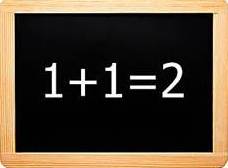In the After Math
by Rabbi Mordechai Rhine
The death of Ahron’s two sons hit the people very hard. It happened on inauguration day of the Mishkan, the Sanctuary they had dedicated so much to build. The Mishkan was supposed to be a “Love Palace” between G-d and the people. Now, two noble sons were slain by Him. The people were in shock.
build. The Mishkan was supposed to be a “Love Palace” between G-d and the people. Now, two noble sons were slain by Him. The people were in shock.
Our Parsha continues the story by telling us that the Kohein Gadol (high priest) was invited to come into the Holy of Holies once day a year, as an emissary of the people. As the Torah describes the formula for this special audience one theme is clear: Hashem still loves the Jewish people even if there was a reason for Him to bring upon them the great tragedy that had just occurred. Certainly, lessons would be learned from the occurrence. Ahron is instructed that his service is not compatible with alcoholic beverages. (One of the things his sons did wrong was to do the service while intoxicated.) Likewise, Aharon is instructed that he cannot enter this special audience with Hashem without following the protocol described. (His sons had brought their offering “without being directed to”. ) Ultimately, the message of this Parsha is that despite the tragedy- and whatever lessons there may be- Hashem still loves you and will still have His relationship with you thrive to great heights.
Often a person, when faced with troubles, may think that Hashem is distant or has abandoned them. This is not a proper, Jewish, conclusion. Great and righteous people also have to deal with “things”. Sarah was barren for decades despite her best efforts. Chana’s prayers were not initially accepted. One cannot read “troubles” as meaning that Hashem is no longer in touch. Instead, the Torah introduces the service of the “holiest day of the year,” the day of Yom Kippur, immediately “after the death of Ahron’s two sons,” to make it clear that despite the tragedy, Hashem is still loving and close.
This is perhaps the emotional and philosophical challenge which Amaleik wanted to introduce. While the Jewish people were on a high from the Exodus, thinking that they were at One with Hashem, Amaleik attacked. In doing so they attempted the ruin the impression that the Jews had of their relationship with Hashem. “If they were vulnerable to attack, did that mean that Hashem didn’t really love them?!” “Do the Math,” Amoleik could easily argue quite rationally. “Just as 1 + 1 = 2, so if you are attacked while you claim to be so beloved, you apparently are not so beloved.” Moshe’s response of prayer (Shimos 17:10; Talmud Rosh Hashana 29a) is a most powerful message. Challenge doesn’t mean Hashem doesn’t like us. It does mean that something needs to be addressed. But even as we do, we direct our prayers to Him for guidance and salvation.
I have often thought that this is the message of placing the Aravos by the Aron in shul (at least for a few moments) after we have beaten them on Hoshana Rabboh. We have completed the High Holiday Service hoping to inaugurate a “sweet new year.” But we know that there are no guarantees. Hashem runs His world as He sees fit. So we bang the Aravos and then place them next to Hashem. In doing so we are saying, “Even if you bang me up, I’m not going anywhere else.” “You are stuck with me,” the Jew says, “please accept my prayers favorably.”
© 2016 by TEACH613™


Really beautifully written and the message I needed to hear today-
Thank you.
– Lisa
Lechvod Rebbi Umori
Thank you so very much for this and all that you do to be such an effective leader and source of spiritual stability and inspiration at a most difficult time.
Thank You Rabbi! I always enjoy and am inspired by your weekly Torah!
-David
Excellent! I think this idea is hinted at in the words of the Rambam when he describes why we don’t say hallel on the yomim noraim. He says that they are days of awe and fear and “mivrach umanos etzlo”, running yet fleeing TO him, how can you run from someone and also flee to him? the answer that I heard from Reb Pinchas Green is that we run from fright but then realize that only he can save us.- similar to what you are saying, that we realize that troubles are from Hashem but we only have him to turn to.
-Abba